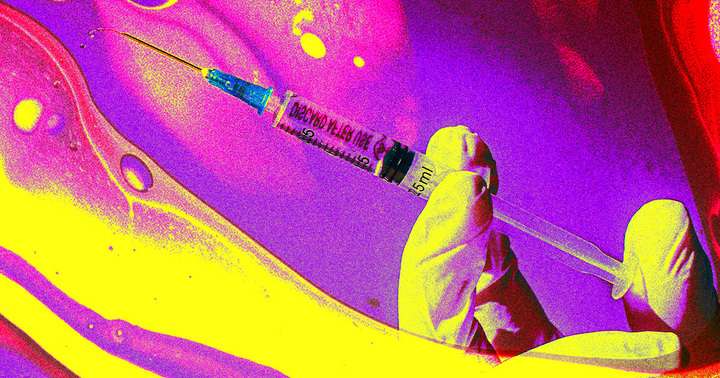
Scientists seem to be close to creating a “one-and-done” vaccine that can protect against any strain of a virus with just one shot.
In a press release from the University of California — Riverside, one of the researchers behind the new RNA vaccine, Rong Hai, explained why he and his colleagues are so excited about their experimental — and allegedly universal — shot.
“What I want to emphasize about this vaccine strategy is that it is broad,” said Hai, a virologist and coauthor of a new paper on the vaccine candidate in the Proceedings of the National Academy of Sciences. “It is broadly applicable to any number of viruses, broadly effective against any variant of a virus, and safe for a broad spectrum of people.”
“This could,” he continued, “be the universal vaccine that we have been looking for.”
In traditional inoculation-based vaccines, there’s either a “dead” version of the virus it protects against or a modified “live” version, which relies on the body’s past immune response to a known pathogen to work. Both prompt the body to produce both T-cells that attack the virus and “memory” B cells that train the immune system to fight back against it in the future.
Because live virus vaccines introduce the virus into the body, people with either underdeveloped or overactive immune systems, like babies or folks with immunocompromising disorders, often have intense side effects.
This new candidate, in contrast, “does not rely on the vaccinated body having this traditional immune response or immune active proteins,” the press release explains. Instead, it uses “small, silencing RNA molecules,” which our bodies create naturally through a process known as RNA interference, or RNAi.
While viruses typically block out the RNAi process, additional molecules could cause viruses to mutate, as UCR microbiology professor and lead paper author Shouwei Ding describes, and not engage in that blockage.
“If we make a mutant virus that cannot produce the protein to suppress our RNAi, we can weaken the virus. It can replicate to some level, but then loses the battle to the host RNAi response,” Ding says in the press release. “A virus weakened in this way can be used as a vaccine for boosting our RNAi immune system.”
The UCR team used mutated mice that lacked both B and T cells and gave them both a shot of the RNAi vaccine as well as a lethal dose of Nodamura, a mouse virus transmitted by mosquitoes. After just one shot, the mice were protected from Nodamura for 90 days — and it seemed to produce the same effect in baby mice, too.
While viruses obviously mutate rampantly, the researchers say that they don’t believe pathogens will be able to circumvent this new, still-unnamed vaccine.
“Viruses may mutate in regions not targeted by traditional vaccines,” Hai, the virologist, said. “However, we are targeting their whole genome with thousands of small RNAs. They cannot escape this.”
Even more exciting: the UCR researchers believe that they will be able to “cut-and-paste” their vaccine-creation strategy and use it for everything from influenza and COVID-19 to other SARS viruses and even dengue — though of course, they have yet to test the shot in humans, and it’s unclear when they’ll do so.
“They all have similar viral functions,” Ding said. “This should be applicable to these viruses in an easy transfer of knowledge.”
More on vaccines: Conspiracy Theorists Said People Who Got the COVID Vaccine Would Be Dropping Like Flies. That Hasn’t Remotely Happened